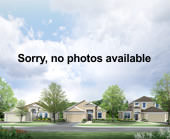If you opt to paint your house yourself, rather than hiring a professional, you need to make sure you are doing so safely. Painting is the perfect DIY home renovation project for beginners, but it is possible to make yourself or others living in your home really sick if you aren't careful. Use these tips to stay safe while you are painting.
Choosing a Paint
First, consider the type of paint you're using in your home. Not all paint is created equal! Luckily, you don't have to worry about lead or asbestos in your paint anymore, but there are other concerns with certain type of paint you use.
- Never use exterior paint inside. There's a reason the exterior paint is labeled as such. No matter how well you ventilate your home, there could be health concerns even after the paint is dry if it is used in an enclosed space.
- Consider organic paints. You can find milk-based paints and paints that are colored with natural ingredients almost as easily as you can find other kinds of house paints, and they look just as beautiful. When you choose organic paints, you don't have to worry about toxins in your home, and it is safer to store the leftovers or throw away the paint cans.
Protecting your Lungs
When painting, your first concern should be your lungs. Breathing while you are painting can be pretty dangerous. In fact, there are some professional painters who have major health concerns and have even died due to paint inhalation. So how can you make sure that you're breathing safely while you paint?
- Don't assume that paints are safe use because you can't smell them. No matter what kind of paint you use, it is important to work in a well-ventilated area. Paint in the summertime if you can so that you can open your windows.
- Take breaks. If you start to feel light-headed at all or develop a headache, leave the room so you can get some fresh air. You should, however, take breaks so that you don't get to that point. Know your limits.
- Wear a rated respirator if you can't ventilate the area. Don't confuse dust masks with breathing apparatuses. Of course, dust masks can be important to protect your lungs, but if you are working with paint in an enclosed area, you need more than that. Look for a respirator that is rated for the type of paint you are using.
Eye Safety
Paint and the chemicals that go along with the painting process can damage your eyes to the point of blindness. No matter how careful you are while using these substances, it is important to take extra steps to protect your sight.
- Wear goggles while using chemical strippers, painting the ceiling, sanding, and scraping paint. Basically, if anything has the potential to drip or fly into your eyes, you should be wearing goggles.
- Keep water around to flush out your eyes if needed. When you're working on home renovations, you may not have the water turned on. If something gets in your eye, what will you do? Make sure that you have water available in bottles so that you can flush your eyes as soon as possible.
- Know what to do if something gets into your eye. Your immediate reaction might be to flush it with water or keep your eye closed. That's not right for every substance. Read the paint and chemical labels before you start working so that you are aware of safety procedures.
Storage Considerations
When storing leftover paint and chemicals, you need to do so in a way that is safe for you, your family, and the environment. Too many homeowners have half-empty cans of paint on their garage floor. That's just asking for trouble!
- Never store paint near a heat source. Most paints are extremely flammable and can explode, especially if they are in a sealed container. Think about “heat sources†carefully. Is the paint stored next to where you park your car? The heat from the engine could be a problem. Are there windows nearby that could magnify the heat of the sun? Do you have space heaters, hot pipes, or hot water heaters nearby?
- Make the paint hard to reach. If at all possible, the paint should be on a high cabinet or locked away. You don't want children to have easy access to it, especially since paint has a tendency to be pretty colors and look like the safe finger paints they use all the time.
Miscellaneous Paint Safety Tips
Remember, professionals may be your best option if you don't have time to be safe. Don't put yourself or others at risk just because you want to save money or time. DIY projects should never be unnecessarily dangerous. Here are some parting paint safety tips to keep in mind:
- Never smoke while you're painting. There could be leftover flammable paint or paint thinner on your hands that burns or explodes with the flame.
- Use canvas drop cloths. Plastic can be slippery, especially when you are off balance on a ladder or reaching to paint high areas.
- Don't throw paint rags in the regular trash. They're susceptible to spontaneous combustion. Instead, spread them out somewhere outside until they are completely dry and then dispose of them with the rest of your county's toxic waste trash.
Painting is a great way to take control of your home projects, as long as you are safe!
Posted by: TrustedPros



